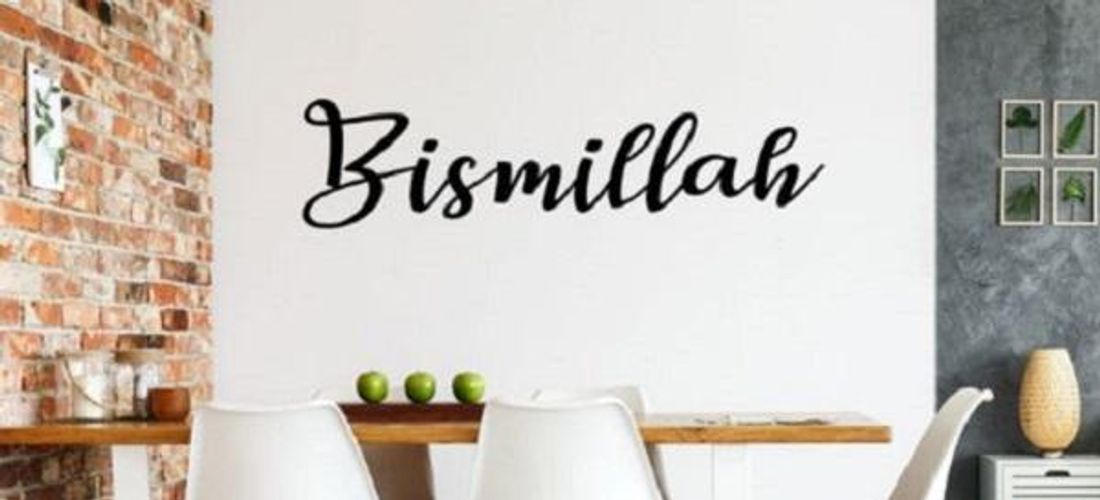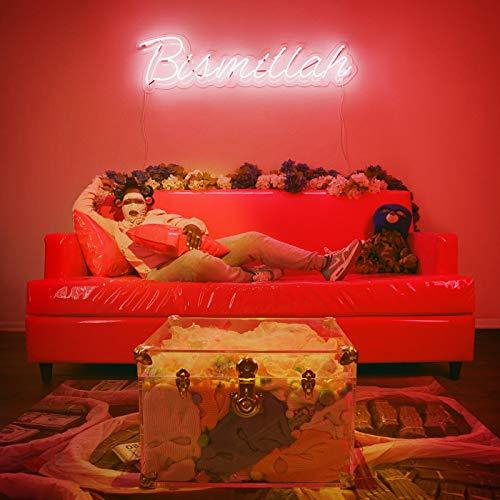Bismillah on Loop: Bringing Depth Back to Our Islamic Utterances & Rituals
Faith
|
Oct 3, 2019
|
4 MIN READ

By Layla Abdullah-Poulos
People identifying as Muslim can exhibit a load of contradictions because, in addition to being a faith-based way of life, Islam is also a cultural identity. Consequently, people may connect with and adhere to the religion in various ways, often resulting in some standpoints, worldviews and behaviors antithetical to its teachings. For example, many Muslims place the term Bismillah at the crux of their attentions and remembrance of Allah, but a pervasive use in popular culture by Muslims and non-Muslims can impact their relationship with it.

Islam is a way of life. It can influence every aspect of a person's day. Consequently, faith-centered colloquialisms and activities may be saturated by people to use culturally in ways that have little or nothing to do with practicing the deen. In Philadelphia, non-Muslim men adopted the grooming habits of Muslim men seeking to adhere to the sunnah, inspiring the “Philly/Sunni Beard.” That is just one example of Muslim faith extending into the broader culture.
My Facebook timeline has recently been bombarded with images of a Muslim-identifying performer who decided to distribute an image of his next album’s artwork, where he is sitting in the middle of – hold on – see for yourself.
View this post on InstagramYou don’t have to change who you are You can bring people into your own world !! THIS MY ALBUM ARTWORK .. NOVEMBER ❤️🙏A post shared by French Montana (@frenchmontana) on Sep 23, 2019 at 7:00am PDT
The caption to this is hilarious: “You don’t have to change who you are. You can bring people into your own world !!” I could go on a rant about exactly whose world he is talking about, because, the last time I looked around, the objectification of women and plastering of hypersexualized contexts onto representations of Muslim women in niqab was a Western, Orientalist thing.
I digress. I did not bring up this performer to analyze his image but rather to discuss the espoused justification for it, responses to it outside of American Muslim culture and the social branding of Islam by people identifying as Muslims. After all, his use of hijab to market himself is not something that only he has done. In a recent online discussion, my editor Dilshad Ali and I talked about the “Busting Stereotype Hijabi” and the use of the head covering for those inside and outside of Muslim culture to frame covered Muslim women so they are more digestible in popular culture.
Muslim women across the globe continue to explore wearing hijab within their varied social and religious contexts. Sometimes the results can be just as reductive and sexually-objectifying as the image above, demonstrating that, for some, engaging in an Islamic activity can hinge more on culture than faith. I’ve been thinking about this more in the context of an extremely basic Islamic word/concept around which so many of us center our lives: Saying Bismillah as we start our day or any activity in our life.
Cultural overlay of faith practices is inevitable. We are social creatures, and how we align with those around us sometimes (unfortunately) becomes more significant than our ethereal ties with Allah. Consequently, we may prioritize mundane and habitual aspects of worship and misapply sentimentality, fad, fetish or kitsch about being Muslim, stripping any spiritual significance to spirituality, even if only temporarily.

The reduction of Islamic ibadah (worship) to socio-cultural activities and optics is not new or restricted to Muslims. Consider the cover of performer Leikeli47’s album "Wash and Set," which has the word “Bismillah” in neon lights over the artist lounging on a sofa.
I don’t know if Leikeli47 is Muslim. Let me know if she is. Let’s put the comments section to work. Any Leikeli47 stans, slow your roll. I’m not hating on her. I jam to “Money” at Zumba, but her use of the phrase as a pop culture artifact is an example of an extension and dissolution of the sacred. But, it’s not the only one. When you think about the word Bismillah and pop cultural, probably the biggest example that comes to mind is “Bohemian Rhapsody, in which the group Queen can be heard saying the phrase, raising questions about the impact on the religious importance of the term in the face of so much cultural co-option.
Let’s think about this word, Bismillah, for a minute. It literally means “In the name of Allah … “ and is said to invoke an intention that we are doing whatever we are doing for the sake of Allah. That’s pretty powerful and beautiful.
For many Muslims, Bismillah is uttered more than anything else in their daily lives. Some of us say it when first waking, before falling asleep and all day long. I often feel like – due to the frequency of how much we say it – the significance slips away, and it becomes nothing more than a routine muttering. Yes, the objective of remembering Allah is met by saying Bismillah, but it can be difficult to reflect on how starting with Bismillah not only affects the quality of the act but also draws us closer to Allah.
We say Islamic terms without any depth all of the time. For example, people will say, As-salamu alaykum to someone for whom they have contempt or while they are mad. So, are they really wishing the person peace? Should they not say it then? Or, is it better to maintain that habit?
Because of the social and artistic application (and cultural appropriation) of Bismillah, one may sometimes feel that saying it is empty and automatic, a matter of social training. And, thus it is important to reconnect with this important word, this important concept, to strengthen our relationship with Allah and the intentions behind the actions after uttering it.
Ideally, saying Bismillah will create a positive footing on the things we do. Applying His name and remembering that it is through his mercy that we are able to do it – this is what we should keep in mind. Saying Bismillah with consciousness allows us to face all parts of the day with good intentions, assured that Allah’s blessings infuse our waking hours and times of slumber. That’s better than anything pop culture has to offer.
Subscribe to be the first to know about new product releases, styling ideas and more.
What products are you interested in?

